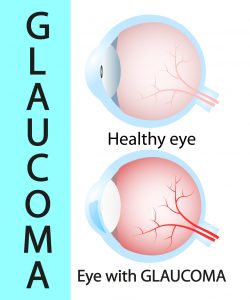 Depression on its own can be a very challenging condition to deal with. This diagnosis not only affects the mind, but can affect the body as well. It can make everyday tasks difficult to deal with such as sleeping, working, and even eating. Because of the effect of depression on eating behaviors, weight gain or loss can occur through appetite changes unrelated to diet. Not only that, but because of the many lifestyle changes that come with a diabetes diagnosis, depression is seen two to three times more often in such patients than those without diabetes. A recent study looked at how diet and exercise factors can affect the relationship between depression and metabolic syndrome.
Depression on its own can be a very challenging condition to deal with. This diagnosis not only affects the mind, but can affect the body as well. It can make everyday tasks difficult to deal with such as sleeping, working, and even eating. Because of the effect of depression on eating behaviors, weight gain or loss can occur through appetite changes unrelated to diet. Not only that, but because of the many lifestyle changes that come with a diabetes diagnosis, depression is seen two to three times more often in such patients than those without diabetes. A recent study looked at how diet and exercise factors can affect the relationship between depression and metabolic syndrome.
What is depression?
We all may feel depressed from time to time. However, a diagnosis of depression is a chronic display of such feelings that can affect daily life, relationships, and can cause both psychological and physical symptoms. If the following symptoms occur for two weeks or more, then you should see a doctor for possible diagnosis and treatment of depression.
- Feeling sad or having a depressed mood
- Loss of interest in activities once enjoyed
- Changes in appetite
- Weight loss or gain unrelated to dieting
- Trouble sleeping or sleeping too much
- Loss of energy or increased fatigue
- Slowed movements and speech
- Feeling worthless or guilty
- Difficulty concentrating or making decisions
- Thoughts of death or suicide
Conditions related to the thyroid, nutrient deficiencies, or tumors of the brain can mimic symptoms of depression. Therefore, such underlying causes should be ruled out by a qualified healthcare provider.
Metabolic syndrome and depression
Metabolic syndrome is the name for a group of risk factors that can increase a person’s risk of chronic diseases like diabetes and stroke.
- A waist circumference of more than 35 inches for women and 40 inches for men
- A triglyceride level of 150 mg/dL or higher
- An HDL cholesterol level of less than 50 mg/dL for women and less than 40 mg/dL for men
- A blood pressure of 130/85 mmHg or higher
- A fasting blood sugar level of 100 mg/dL or higher
Research shows that there is a relationship between those with depression and metabolic syndrome. A recent study looked at this relationship to see what exactly is causing it. Researchers looked at data from over 64,000 adults. Study results show that those with depression are highly linked to a high fat, high sugar diet regimen and low levels of physical activity.
Researchers suggest that diet and exercise may link depression and metabolic syndrome. However, they also state that inflammation and genetic factors have a greater causal link between the two conditions. Inflammation can develop as a result of the stress on the brain due to depression that may cause an imbalance in gut microbiome. This link is a theory known as the gut-brain axis. This in turn, could cause inflammation in the body that could increase risk of chronic diseases like heat disease and diabetes.
How to lower risk of metabolic syndrome
Besides diet and exercise, you can use the tips below to help lower your risk of metabolic syndrome.
- Add more fruit and vegetables to your diet: More fruits and vegetables means more antioxidants. And more antioxidants in your diet means more anti-inflammatory power. In turn, you can help reduce inflammation in your body by adding more colorful fiber sources to your plate at each meal.
- Move more: Exercising at least 30 minutes a day for most days of the week can help you manage your weight. It can also help you manage stress and strengthen your heart. All of these factors can help reduce inflammation in your body and lower chronic disease risk.
- Stop smoking or never start: Smoking can constrict blood vessels and in turn can increase heart disease risk. Therefore, if you already smoke, visit Smokefree.gov to quit. If you have never started smoking, then don’t. Your body will thank you.
- Take a daily supplement: If you are deficient in nutrients, then this could put you at risk for conditions like depression that have an inflammatory link. Certain supplements can also help you gain better control over your blood glucose levels too. Glucarex by Vita Sciences is one such supplement that uses chromium, alpha lipoic acid, and cinnamon to help support weight loss, metabolism, and blood glucose levels.
-written by Staci Gulbin, MS, MEd, RD
References:
American Psychiatric Association (January 2017) “What is Depression?” Physician Review By: Ranna Parekh, M.D., M.P.H.
Matta J, Hoertel N, Kesse-Guyot E, et al. (2019) Diet and physical activity in the association between depression and metabolic syndrome: Constances study. J Affect Disord., 244:25-32.
National Heart, Lung, and Blood Institute (accessed November 6, 2018) “Metabolic Syndrome.”
 It may seem like common sense that living a healthier lifestyle can lower your disease risk. but what exactly is a healthier lifestyle? With so much information on health and wellness in the media, it can be hard to know what healthy really is. From low carb to keto to fasting, each diet plan claims to be the best and healthiest. However, the healthiest eating regimen is going to be the one that makes your unique body feel its best and that you can stick with for the long term. Not to mention, that being healthy is about more than just diet. Staying active, managing stress, and sleeping well enough are just some behaviors that affect health. Recent research shows that leading a healthier lifestyle can reduce your stroke risk and in turn improve your quality of life.
It may seem like common sense that living a healthier lifestyle can lower your disease risk. but what exactly is a healthier lifestyle? With so much information on health and wellness in the media, it can be hard to know what healthy really is. From low carb to keto to fasting, each diet plan claims to be the best and healthiest. However, the healthiest eating regimen is going to be the one that makes your unique body feel its best and that you can stick with for the long term. Not to mention, that being healthy is about more than just diet. Staying active, managing stress, and sleeping well enough are just some behaviors that affect health. Recent research shows that leading a healthier lifestyle can reduce your stroke risk and in turn improve your quality of life. Diabetes can be a tough disease to manage. From doctor’s visits to medications to daily blood glucose checks, it can be a lot to juggle for anyone. Not only that, but having diabetes means diet changes that can make every meal or snack a challenge. Counting carbohydrates and reading labels can become a new task to take on every time you buy groceries. This can be time-consuming and can also make social events stressful.
Diabetes can be a tough disease to manage. From doctor’s visits to medications to daily blood glucose checks, it can be a lot to juggle for anyone. Not only that, but having diabetes means diet changes that can make every meal or snack a challenge. Counting carbohydrates and reading labels can become a new task to take on every time you buy groceries. This can be time-consuming and can also make social events stressful. If you have diabetes, you may or may not know that you are at higher risk for heart disease than those who don’t have diabetes. However, in addition to heart disease, you could also be at risk for bone health issues. This risk was discovered in a recent study that found those with diabetes were at higher risk for osteoporosis than those without diabetes. Therefore, this finding warrants further research on this risk. And in turn, standard diabetes diet and supplement treatments may need to be revised to account for this higher risk.
If you have diabetes, you may or may not know that you are at higher risk for heart disease than those who don’t have diabetes. However, in addition to heart disease, you could also be at risk for bone health issues. This risk was discovered in a recent study that found those with diabetes were at higher risk for osteoporosis than those without diabetes. Therefore, this finding warrants further research on this risk. And in turn, standard diabetes diet and supplement treatments may need to be revised to account for this higher risk. Obesity is a growing problem around the world today. Along with these growing statistics is also the growing amount of diet and exercise programs trying to help people lose weight. Recent research shows though that diet and exercise may not be the whole solution to the obesity issue. Vitamin D, also known as the sunshine vitamin, may be the key to helping people lose weight and lower risk of chronic disease.
Obesity is a growing problem around the world today. Along with these growing statistics is also the growing amount of diet and exercise programs trying to help people lose weight. Recent research shows though that diet and exercise may not be the whole solution to the obesity issue. Vitamin D, also known as the sunshine vitamin, may be the key to helping people lose weight and lower risk of chronic disease. An essential part of a heart healthy diet is plenty of plant-based unsaturated fats. Not only do plant-based foods provide heart-healthy fiber, but they are also rich in antioxidants. These antioxidants can help reduce inflammation in the body, and in turn reduce chronic disease risk. One such group of antioxidants are the omega-3 fatty acids found in such foods as avocado, plant-based oils and fatty fish. Recent research shows that these healthy fats may be able to help with mental health. A recent study shows that by increasing the amount of healthy fats in your diet, you could help reduce symptoms of anxiety.
An essential part of a heart healthy diet is plenty of plant-based unsaturated fats. Not only do plant-based foods provide heart-healthy fiber, but they are also rich in antioxidants. These antioxidants can help reduce inflammation in the body, and in turn reduce chronic disease risk. One such group of antioxidants are the omega-3 fatty acids found in such foods as avocado, plant-based oils and fatty fish. Recent research shows that these healthy fats may be able to help with mental health. A recent study shows that by increasing the amount of healthy fats in your diet, you could help reduce symptoms of anxiety. What is glaucoma?
What is glaucoma? Now you may be saying to yourself, “Another article telling me to eat vegetables.” :sigh: However, this is not just another one of “those” articles. There are more reasons to eat your veggies than you may think. Besides providing digestive-friendly fiber and antioxidants, a recent study has shown that eating a more plant-based diet can actually lower your heart and diabetes health numbers.
Now you may be saying to yourself, “Another article telling me to eat vegetables.” :sigh: However, this is not just another one of “those” articles. There are more reasons to eat your veggies than you may think. Besides providing digestive-friendly fiber and antioxidants, a recent study has shown that eating a more plant-based diet can actually lower your heart and diabetes health numbers. Heart disease is the leading cause of death for men and women in the United States. It accounts for one in four deaths each year. However, yo can prevent heart disease by changing some lifestyle factors to lower your risk. Risk factors of heart disease include poor diet, physical inactivity, being overweight or obese, being a smoker, and having diabetes. Fortunately, by working to change a few things in your daily routine, you can lower your risk of heart disease. Here are the top five things you can do today to lower your risk of heart disease.
Heart disease is the leading cause of death for men and women in the United States. It accounts for one in four deaths each year. However, yo can prevent heart disease by changing some lifestyle factors to lower your risk. Risk factors of heart disease include poor diet, physical inactivity, being overweight or obese, being a smoker, and having diabetes. Fortunately, by working to change a few things in your daily routine, you can lower your risk of heart disease. Here are the top five things you can do today to lower your risk of heart disease. When you don’t get enough sleep, it can affect your whole day. You may move slower, have less energy, your mind may have a hard time learning or remembering things, and you may be more easily stressed and irritated. In turn, these factors can affect your productivity during the day and the way you get along with others. Therefore, it is super important to get enough rest at night. And just when you thought that you were reaching your health goals, a new report states that eight hours a night of rest may not be enough.
When you don’t get enough sleep, it can affect your whole day. You may move slower, have less energy, your mind may have a hard time learning or remembering things, and you may be more easily stressed and irritated. In turn, these factors can affect your productivity during the day and the way you get along with others. Therefore, it is super important to get enough rest at night. And just when you thought that you were reaching your health goals, a new report states that eight hours a night of rest may not be enough.